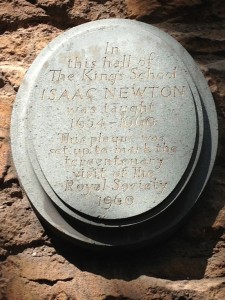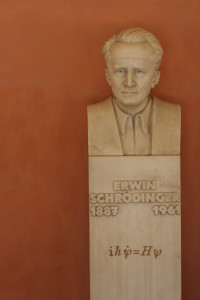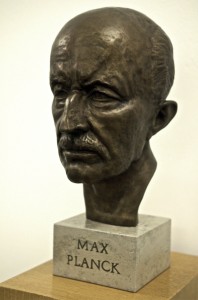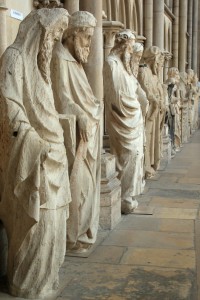Last week I was on Coast to Coast AM with George Noory. Beginning while the show was still on air, I received a wonderful flood of emails, so many that it took me two days and nights to answer them all. Most were questions or comments, but a few were heartbreaking stories. One of these came from Dawn. Hers was one of the first emails I opened, and it was so full of pain that it brought tears to my eyes.
with George Noory. Beginning while the show was still on air, I received a wonderful flood of emails, so many that it took me two days and nights to answer them all. Most were questions or comments, but a few were heartbreaking stories. One of these came from Dawn. Hers was one of the first emails I opened, and it was so full of pain that it brought tears to my eyes.
She said in part, “Faith died on December 15, 2014. She would have been 3 in February on the 25th. I don’t know how to find my way through this. Most days I hope someone will smash into me on the freeway and end it without it being my own fault. My baby, who could get in and out of the bath tub alone, drowned with no splash, no hitting her head, in the tub within moments of my sister getting her own toddler son out of the same bath in the master bedroom. How am I supposed to understand this, let alone go on?”
What could I say to comfort her? I talked about how we plan our lives, and “especially when you describe the way she died, I find it hard to believe that could have been anything but planned. Your gift to her will be to learn and grow spiritually. I know you find it impossible to believe this now, but when you are hugging the lovely young woman she will be when you see her again, you will understand. Dear friend, you live many lifetimes! You have reared children in other lifetimes, and you will do it again – this lifetime is just one hard day at the gym. And for this particular lifetime you are working at gaining spiritual gifts that perhaps you can’t achieve in any other way. The growth to come is her gift to you.” I had hours of answering emails ahead, and no time to say more. But I winced as I hit Send.
The next day Dawn sent me an astonishing email. The most important parts are in italics. “Thank you for taking so much time to write to me. I need to share something with you that I just found out about. My sister’s husbands family spent time with my Faith that I was not a part of as I worked. His younger sister, Angel, had a dream about Faith just last night. The same night I was reaching out to you and hurting so so bad. She texted the dream to my sister, who just told me about it… In the dream Faith appeared at a family party, and everyone knew she had passed but was so excited to see her. Faith was happy, giggling and excited by the attention and told them that she could not stay long and she had to go home. She went into a jumping house thing and Angel woke up crying.”
This was an astonishing communication dream! I emailed Dawn right away. “Dear friend, the dream and its timing were NOT coincidence, as of course you know! Your beautiful Faith has been desperate to get through to you the fact of her survival and her joy, but you have been too full of negative emotions – grief, anger – which are absolute barriers to the dead when they try to communicate with us. In desperation, she gave her message to someone close to you who would be able to get it to you. And she was at a FAMILY PARTY! Which, of course, is where she is right now! Faith was happy, giggling and excited by the attention, and she told them she could not stay long and she had to go home. WOW! There is her message to you, darling friend – that is what she wants you to know!
“Dear Dawn, the timing and the dream and the fact that you were listening to C2C and you reached out to me as you did and the fact that I answered your email right away were all Faith’s beautiful work. Her brief life here was the gift to you of a very advanced eternal being who loves you very much and will be waiting to hug you after you have used her gift to build an extraordinary life of spiritual growth. Not all gifts are pleasant to receive! Some are terrible, but beautiful all the same. Be comforted, dear Dawn, and allow Faith to help you heal and make the most of this brief lifetime!”
When I heard from Dawn again, she was calmer. “I had to read your emails a few times to really get the full sense of this message from Faith. At first I just took it in the context of the dream, but I am seeing now that it was really about her whole life here with me as well.”
Within a couple of days she was saying, “Thank you for sharing all of your insight with me. I don’t want to speak too soon, but for now, this interaction and Faith’s message has brought me to a place I didn’t think I would ever truly know again. I think I am getting that acceptance. I miss her so very much every day. I don’t want to jump the gun, but I think I am feeling better.”
And a day or two later she said, “Thank you for checking in on me… the pain seems to have eased in a good way. I ache for her and miss her badly, but somehow it is different than it was before that night.”
Ascended beings tell us that every child who dies is an advanced being who didn’t need a whole lifetime, but who went through the difficulties of entering a fetus and being born and living a brief life here as a spiritual gift to those who love and lose that child. I know how you feel. I don’t like this either! But in the context of our eternal lives, the brief separation from a beloved child that can start us on a lifetime of spiritual growth is not the tragedy that it would be if this brief lifetime were all there was. Dawn isn’t past her grief. You never really get over the loss of a child. But knowledge is power! Knowing that every child who dies is happy, safe, and growing up in a beautiful reality surrounded by love helps most bereaved parents immeasurably.
that child. I know how you feel. I don’t like this either! But in the context of our eternal lives, the brief separation from a beloved child that can start us on a lifetime of spiritual growth is not the tragedy that it would be if this brief lifetime were all there was. Dawn isn’t past her grief. You never really get over the loss of a child. But knowledge is power! Knowing that every child who dies is happy, safe, and growing up in a beautiful reality surrounded by love helps most bereaved parents immeasurably.
Faith’s gift to her mother is also her gift to you.

 much I appreciate your friendship. If we have recently met on the wonderful George Noory’s
much I appreciate your friendship. If we have recently met on the wonderful George Noory’s  strengthen our spiritual muscles. Things like poverty, cancer, abusive spouses, the deaths of children, and other calamities are pretty obvious spiritual lessons, but believe it or not, they aren’t the big ones. No, the evidence is strong that the toughest life lessons of all are possession of either wealth or power. Put them together, and you have a one-two punch at which even advanced beings quail.
strengthen our spiritual muscles. Things like poverty, cancer, abusive spouses, the deaths of children, and other calamities are pretty obvious spiritual lessons, but believe it or not, they aren’t the big ones. No, the evidence is strong that the toughest life lessons of all are possession of either wealth or power. Put them together, and you have a one-two punch at which even advanced beings quail.  hardly matters, but two members of the trio were often in the news. The third dropped out of sight. Soon it became known that he was giving most of his gains away. Eventually some reporter cornered him on the street and said something like, “Dude, what are you thinkin’?” This beautiful young man retorted, “If I kept more than what my family needs, how could I ever look God in the face?” He had chosen a tough lesson, but he was Acing it.
hardly matters, but two members of the trio were often in the news. The third dropped out of sight. Soon it became known that he was giving most of his gains away. Eventually some reporter cornered him on the street and said something like, “Dude, what are you thinkin’?” This beautiful young man retorted, “If I kept more than what my family needs, how could I ever look God in the face?” He had chosen a tough lesson, but he was Acing it. exalts himself will be humbled, and whoever humbles himself will be exalted.” (MT 23:11-12) And “I tell you the truth, anyone who will not receive the kingdom of God like a little child will never enter it.” (MK 10:15) These pretty words are not just words! The afterlife evidence confirms that they are statements of fact about the spiritual physics that governs all our lives.
exalts himself will be humbled, and whoever humbles himself will be exalted.” (MT 23:11-12) And “I tell you the truth, anyone who will not receive the kingdom of God like a little child will never enter it.” (MK 10:15) These pretty words are not just words! The afterlife evidence confirms that they are statements of fact about the spiritual physics that governs all our lives. distressing question. She said that people of her race are too often thwarted in life, and she asked me whether racial differences are “a joke from God.” She especially wanted to know whether in the afterlife everyone would be equal. Her question is heartbreaking, but its answer is thrilling.
distressing question. She said that people of her race are too often thwarted in life, and she asked me whether racial differences are “a joke from God.” She especially wanted to know whether in the afterlife everyone would be equal. Her question is heartbreaking, but its answer is thrilling. early, but the shock of my gender-switch was so great that I still can distinctly recall that moment.
early, but the shock of my gender-switch was so great that I still can distinctly recall that moment. If there is one question I am asked more frequently than any other it is whether our companion animals are waiting for us in the afterlife levels. Some people lead with a personal challenge: “If my dogs can’t be there, I’m not going!” I understand how they feel. A heaven without our animal friends would not be a heaven at all, so I’m delighted to report to you that every animal we ever have loved awaits us in a beautiful eternal reality where love never ends.
If there is one question I am asked more frequently than any other it is whether our companion animals are waiting for us in the afterlife levels. Some people lead with a personal challenge: “If my dogs can’t be there, I’m not going!” I understand how they feel. A heaven without our animal friends would not be a heaven at all, so I’m delighted to report to you that every animal we ever have loved awaits us in a beautiful eternal reality where love never ends.
 minutes, I knew. We had moved twice during his lifetime, and Beau was thanking me that he had been kept safe during both of the moves of his life and gently cared for until he died. After that dream, I have decided that I won’t ride or drive a horse again until my friend and I are reunited and I can have bugs in my teeth forevermore.
minutes, I knew. We had moved twice during his lifetime, and Beau was thanking me that he had been kept safe during both of the moves of his life and gently cared for until he died. After that dream, I have decided that I won’t ride or drive a horse again until my friend and I are reunited and I can have bugs in my teeth forevermore. groupie reading popular-science versions of what physicists are up to now feels mind-shriveling. I will give you some quick examples from the recent press:
groupie reading popular-science versions of what physicists are up to now feels mind-shriveling. I will give you some quick examples from the recent press: won’t interact with photons of light. They tell us that everything that we think of as real makes up only 4-5% of the universe, while dark matter makes up 23-27%. (Apparently estimates vary.) So in an effort to study a mass which is five times the size of the known universe, physicists are looking for wimps thousands of feet beneath the surface of the earth. This time we’re reading
won’t interact with photons of light. They tell us that everything that we think of as real makes up only 4-5% of the universe, while dark matter makes up 23-27%. (Apparently estimates vary.) So in an effort to study a mass which is five times the size of the known universe, physicists are looking for wimps thousands of feet beneath the surface of the earth. This time we’re reading  minds are eternal. We are learning a great many interesting things about each of the very issues that are puzzling and confounding physicists today. And looking at what we have to show them would at least give physicists the welcome chance to go back to sometimes studying things that can be seen with the naked eye.
minds are eternal. We are learning a great many interesting things about each of the very issues that are puzzling and confounding physicists today. And looking at what we have to show them would at least give physicists the welcome chance to go back to sometimes studying things that can be seen with the naked eye. real – perhaps most of what is real – is not material. Yet it interacts with and profoundly influences the material reality that physicists are trying without much success to understand. So might it be useful to the advancement of physics for universities to abandon their century-old dogma of adamant atheistic materialism?
real – perhaps most of what is real – is not material. Yet it interacts with and profoundly influences the material reality that physicists are trying without much success to understand. So might it be useful to the advancement of physics for universities to abandon their century-old dogma of adamant atheistic materialism? battle was forgiving themselves. Self-forgiveness is hard for many of us, perhaps because those raised in Christianity have been steeped in the pain of our inherent sinfulness. The afterlife evidence has some pretty important news for us on that score! But before we talk about how we can best deal with the notion of original sin, let’s first understand why learning self-forgiveness is so important.
battle was forgiving themselves. Self-forgiveness is hard for many of us, perhaps because those raised in Christianity have been steeped in the pain of our inherent sinfulness. The afterlife evidence has some pretty important news for us on that score! But before we talk about how we can best deal with the notion of original sin, let’s first understand why learning self-forgiveness is so important.  sins against me? Up to seven times?” Jesus answered, “I tell you, not seven times, but seventy-seven times.” (MT 18:21-23) No matter how many times someone does you wrong, you are meant to forgive without a thought. Every time.
sins against me? Up to seven times?” Jesus answered, “I tell you, not seven times, but seventy-seven times.” (MT 18:21-23) No matter how many times someone does you wrong, you are meant to forgive without a thought. Every time.  loves: universally and completely. That’s it! And that’s all. Learning to love is why we live in families, why we are crowded enough to have to deal with others, why some of those we deal with do us wrong, and why bad things happen to good people. Every occurrence in your life is either love or a call for love. So no matter the question, love is always the answer.
loves: universally and completely. That’s it! And that’s all. Learning to love is why we live in families, why we are crowded enough to have to deal with others, why some of those we deal with do us wrong, and why bad things happen to good people. Every occurrence in your life is either love or a call for love. So no matter the question, love is always the answer. So, how do we manage radical forgiveness? The easiest way feels like a physical process. What I did in the beginning was to package the wrong in my mind, gather it all up and wrap it together. Then I would think, “I forgive and release!” and let it go. I let it go physically: I pushed it away. Sometimes the darned thing would come back so I would have to go through the process again, but now my forgiveness is so automatic that I seldom give it a thought. Outrage turns out to be a lot like anger. If you court it and really let yourself feel it, you are going to feel a lot more of it; but if you refuse to give it mind-space, soon it doesn’t even get started. You still notice the wrong, and you recall how that sort of thing used to really wreck your day, but now it doesn’t bother you at all.
So, how do we manage radical forgiveness? The easiest way feels like a physical process. What I did in the beginning was to package the wrong in my mind, gather it all up and wrap it together. Then I would think, “I forgive and release!” and let it go. I let it go physically: I pushed it away. Sometimes the darned thing would come back so I would have to go through the process again, but now my forgiveness is so automatic that I seldom give it a thought. Outrage turns out to be a lot like anger. If you court it and really let yourself feel it, you are going to feel a lot more of it; but if you refuse to give it mind-space, soon it doesn’t even get started. You still notice the wrong, and you recall how that sort of thing used to really wreck your day, but now it doesn’t bother you at all. holy writ, certain helpful folks have suggested that the Koran may need editing. Well, a certain other book could use a bit of editing as well.
holy writ, certain helpful folks have suggested that the Koran may need editing. Well, a certain other book could use a bit of editing as well. This is the first and greatest commandment. And the second is like it: ‘Love your neighbor as yourself.’ All the Law and the Prophets hang on these two commandments.” (Mt 22:37-40)
This is the first and greatest commandment. And the second is like it: ‘Love your neighbor as yourself.’ All the Law and the Prophets hang on these two commandments.” (Mt 22:37-40) pioneering work in studying aspects of consciousness, I’m going to offer you another great TED talk that was delivered by Australian philosopher and cognitive scientist David Chalmers in 2014. Chalmers shares with us here some extraordinary insights about consciousness. And surprisingly, his TED talk has not yet been banned!
pioneering work in studying aspects of consciousness, I’m going to offer you another great TED talk that was delivered by Australian philosopher and cognitive scientist David Chalmers in 2014. Chalmers shares with us here some extraordinary insights about consciousness. And surprisingly, his TED talk has not yet been banned!









